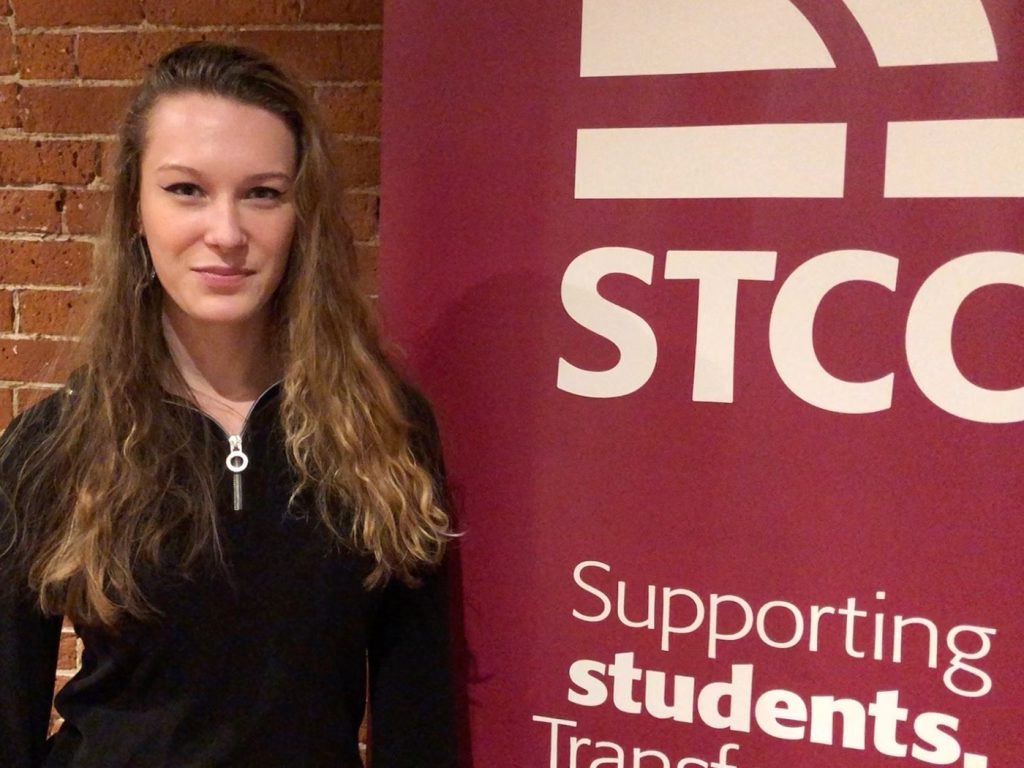By Darren Johnson
Campus News
Midterms? Done. Finals? Approaching.
You see the finish line for the Fall semester in the distance. Your attendance has been good. You’ve done about as well as expected grade-wise. This is it.
But, while your grades may be OK, are you OK? Emotionally OK?
That may sound like a softball question, especially in college, where grades seem to be the indicator if all is well or not. But your grades could be passing while your personal life becomes more and more stressful – eventually that is what may force you to miss a semester, or maybe even drop out.
A 2016 study says that the current generation of college students are not emotionally prepared, thus the high dropout rates you may have been reading about. Now, not everyone drops out. Some may just reduce their course loads, or take lower grades than they are capable of, but these things, too, accumulate, and make graduation more difficult to attain.
The JED Foundation, Partnership for Drug-Free Kids and Jordan Porco Foundation last month released the results of a national “First-Year College Experience” survey, exploring the challenges associated with over 1,500 young adults’ transition from high school to college. Data indicate that a majority of US first-year college students feel emotionally unprepared for college, and these students are more likely to report poor academic performance, regularly consume drugs or alcohol, consider transferring and rate their overall college experience as terrible/poor.
Some critical findings include:
- 60% of students wish they had gotten more help with emotional preparation for college
- 87% said college prep during high school focused more on academics than emotional readiness
- 57% reported there was greater pressure to attend a prestigious college over a school that was “a better fit”
- 50% found it difficult to get needed emotional support at college
- More than 75% of students felt that social media, TV and movies made college seem a lot more fun than it actually was; 22% felt depressed all or most of the time, while nearly 50% said “it seems like everyone has college figured out but me.”
Specifically, students who said they felt less emotionally prepared for college than their peers were more likely to have a lower grade point average (GPA) (on average, 3.1 vs 3.4) and rate their overall college experience as “terrible/poor” (22% vs 5%). Further, a majority of all students (60%) wish they had gotten more help with emotional preparation for college; certain groups of students were more likely to agree with this statement than their counterparts; those with a lower GPA (66% vs 55% higher GPA), regularly consumed drugs or alcohol (65% vs 58% who did not), considered transferring or transferred to a different school (70% vs 56% who did not), took a leave of absence after the first term (77% vs 58% who did not), and rated their overall college experience as “terrible/poor” vs “fair” or “excellent/good” (85% vs 68% & 51%).
Students reported that the first-year of college is full of emotional challenges that span far beyond academics. Among myriad challenges, pressures such as paying for college expenses (40%), making new friends (30%), keeping in touch with family and friends not at their college (28%), and being independent (16%) were reported as being “extremely or very challenging,” and nearly half of students (45%) felt that “it seems like everyone has college figured out but me.”
Stress is a common theme among first-year college students; what is concerning, however, is that 50% of students reported feeling stressed “most or all of the time” and 36% did not feel as if they were in control of managing the stress of day-to-day college life. What’s more, students with lower GPAs were more likely than those with higher GPAs to say they did not feel in control of the day-to-day stresses of college (45% vs 31%).
“Survey data indicate that college readiness requires far more than just a solid academic foundation – a finding that seems counter to conventional higher education preparation. It is clear that emotional preparedness should be better integrated into the work that high school communities are doing to guide students through the transition into college,” said John MacPhee, Executive Director, The JED Foundation.
More than half of students (51%) found it difficult at times to get emotional support at college when they needed it, and more than 1 in 10 students (11%) said they did not turn to anyone for support when needed. Certain groups are more likely to turn to no one for support, including: males vs. females (16% vs 6%) and those who rate their first term experience as “terrible/poor” or “fair” vs “excellent/good” (15% and 16% vs 7%).
When they do seek support, college students are much more likely to turn to friends (76%) or family members (64%) than university staff (24%). However, a large majority of students (65%) said they tended to keep their feelings about the difficulty of college to themselves; African-American students are more likely to say this than white students (75% vs 61%).
Risk of Substance Abuse
Almost a third of students (30%) reported regularly consuming drugs or alcohol during their first term, which can have serious consequences on students’ health and well-being. Specifically, these students were more likely than non-regular drug/alcohol users to rate their emotional health worse than their peers (39% vs 32%) and experience negative emotions such as stress (56% vs 47%), anxiety (43% vs 36%), and feeling overwhelmed (47% vs 40%). Further, these students were more likely to say they had difficulty getting the emotional support that they needed during their first college term (61% vs 47%) and expressed a greater desire for help with emotional preparation for college (65% vs 58%).
“Transitions – from middle to high school, and high school to college – are danger points for kids and stress and substance use, and we urge parents to be particularly attentive and communicative at these times,” said Sean Clarkin, EVP, Research and External Relations, Partnership for Drug-Free Kids. “Given that 20% of students said they used drugs or alcohol when stressed or overwhelmed in high school, the potential escalation of these behaviors in college is concerning.”
Rethinking College Preparation
The vast majority of students (87%) reported that during high school, there was more emphasis on being academically ready rather than emotionally ready for college, and 50% said their independent living skills need improvement.
The survey data showed that among pressures students faced when choosing which college to attend, most students felt “a great deal of pressure” to attend a well-known college (57%) and agreed that their high schools placed greater emphasis on college prestige than “fit” (52%).
“As high school seniors start applying to college around this time of year, parents and people influential in their lives can play an important role in helping children build confidence and life skills. It is important to guide them toward choosing a college that best fits their needs first and foremost — not only in an academic sense, but also relative to emotional needs,” said Marisa Giarnella-Porco, Co-Founder, President and Chief Executive Officer, The Jordan Porco Foundation.
A web site, www.SettoGo.org, aims to be a resource to help students transition through college and beyond.
You should also contact your campus counseling center if you are starting to feel overwhelmed, or falling into some of the issues noted above. Your grades are not the only indicator of your success or failure. The campus counseling center is there to help.






Facebook Comments